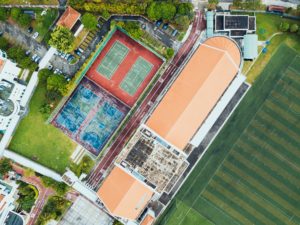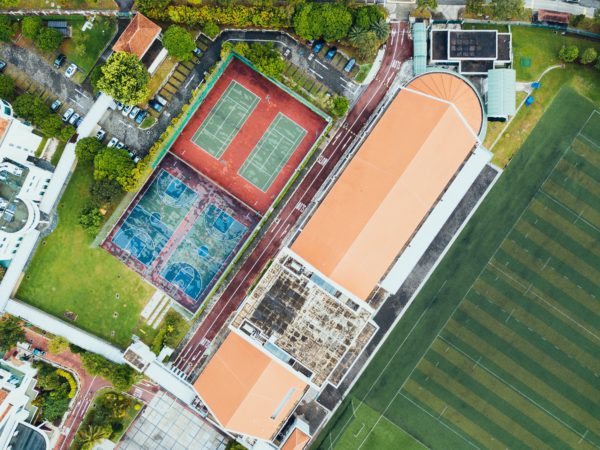“It is the business of teachers to run not merely schools but the world” – A Sociological Philosophy of Education, 1928.

2020 has received a number of big lessons from nature in the form of fires, floods, and Flu (capital emphasis for coronavirus). Perhaps one of the many by-products from these lessons is just how much humanity relies on educators to guide the next generation. Make no mistake, this is disruption at scale. Systems, organisations, and infrastructure are being squeezed and stretched. I hope that once recovery emerges, education has stepped further away from schooling.
The reference at the top comes from the book ‘Weapons of Mass Instruction: A Schoolteacher’s Journey Through the Dark World of Compulsory Schooling‘ by John Taylor Gatto (2010). This aptly titled book was a pivotal one in my own wrestle with the point of school. It’s crucial to appreciate the difference between education and school and the subsequent role of teachers. If we are to evolve the way students learn through location and medium and create a better balance of pedagogy, then times like this become deeply important. To explain this, I’m going to use references from Gatto’s book.
Much of the frustration with schools around what, how, when students learn is driven by the system of schooling. It is built on routine, discipline, and often highly extrinsic factors of motivation; with the drivers of curriculum and school expectations. As Gatto explains, “school is the first impression we get of an organized society and its relentless need to rank everyone on a scale of winners and losers.” School is “set out to create a reflexive obedience to official directions as opposed to accepting responsibility for one’s own learning.” To be clear, schools are not nefarious or deceitful by design or nature, it is simply how they’ve been setup to teach at scale, using timetables, bells, classrooms, tests/exams, uniforms, textbooks, and year levels. Yet “if we wanted we could easily and inexpensively jettison the old, stupid structures and help kids take an education rather than merely receive schooling.” This is a key difference in the transition that has been happening to schools over the last 40-odd years.
As much as schooling has been resistant to change, some schools and educators have increasingly been navigating the conventions and students negotiating the rules. Primary school has seen the biggest shift to “simply being more flexible about time, texts, and tests” and this has had a subsequent impact on Middle years. Many Middle years programs, especially around Year 9, often resemble the structures and approaches of Primary school, with greater emphasis on project depth, teacher relationships, and wellbeing. “Consider what society would look like if 65 million trapped schoolchildren learning to be consumers were suddenly set to actively imagining themselves in independent livelihoods, adding value to the rest of the community; imagining themselves as producers instead of bored consumers.” The final sector of schooling that is currently under pressure is High school, wrestling between its emphasis on scores and tertiary entrance and supporting students to show what they’ve learnt from their experiments in school and the skills they can offer to the community.
“Well-schooled people are conditioned to dread being alone; they seek constant companionship through the TV, the computer, the cell phone, and through shallow friendships quickly acquired, quickly abandoned.” I wonder that being ‘well-schooled’ also leaves students detached from the real-world, reflected in the urgency with which young people are dealing with anxiety and mental wellbeing. These patterns are seen in many ‘high-performing’ systems (if using a narrow PISA-league definition) where youth suicide increases as scores increase. In Australia it may be more complex than that, yet suicide is one of the biggest causes of death for youth aged 15-25. What is the cost of a ‘back-to-basics’ approach that allows politicians and society to pressure educators to drill kids into learning submission?
Schools have come a long way in balancing so many expectations from across society and governments. There is still a system where “schooling is a matter of habit and attitude training”, but increasingly we are helping students see “education is a matter of self-mastery.” It may be that this period of sudden transition to online learning and learning-at-home, where some schools will struggle and some excel, will highlight just how little schooling matters in the lives of our students. For Gatto a decade ago, “the most curious commentary on these kids is the thousands of hours they spend in not exploring, not playing, not seeking opportunities for personal gain.” These next few months will shift that dial.
What’s prevalent already in the digital transition of school is how it’s making teaching more visible. Is learning a teacher talking to a laptop in front of a white board? Is learning a bank of students in little windows all listening to another talking ‘head’ (the head of the class)? You show me the ‘engagement’ after a month or two; it will get tiring and repetitive. No doubt teachers will learn some new techniques. Some of these will be digital, but even better some of these will be pedagogical. There are new weapons of mass instruction to be utilised. Synchronous learning may not be all school is about. Setting asynchronous tasks that allow learners to manage their own education is a test of maturity, but it’s also a test of how institutionalised they have become. Take away the physical location of school, and what are you left with? People who want to learn and people who can impart the learning. What if students are better at teaching this transition than the teachers?
Learning is now relatively unconfined, beyond the isolation that is coming for all of us. Educators will need to design even more explicitly for collaboration, using digital methods, but also using the creativity of how students can stay connected as humans. In this way education is more student-directed and not an online replication of the timetable – which I’m worried will be the push from many schools. Perhaps the most powerful line from Gatto on this is captured in what we all think we know, because once-upon-a-time we all went to school – “The way you and I are schooled is identical for each of us: the way we get educated has little in common.” His description of an educated person is worth listing here –
- Educated people are seldom at a loss in what to do with their time
- Educated people can form healthy attachments anywhere because they understand the dynamics of relationships
- Educated people possess a hard-won personal blueprint of value
- Educated men and women enjoy power to create new things, new ideas and new experiences
- Educated people detect other people’s needs and in moving to meet those needs earn a living
So perhaps instead of remaking schooling, we are in the space where we can reconnect students to education, where the rules and routines are disrupted. An attrition of intrinsic over extrinsic, finally.
